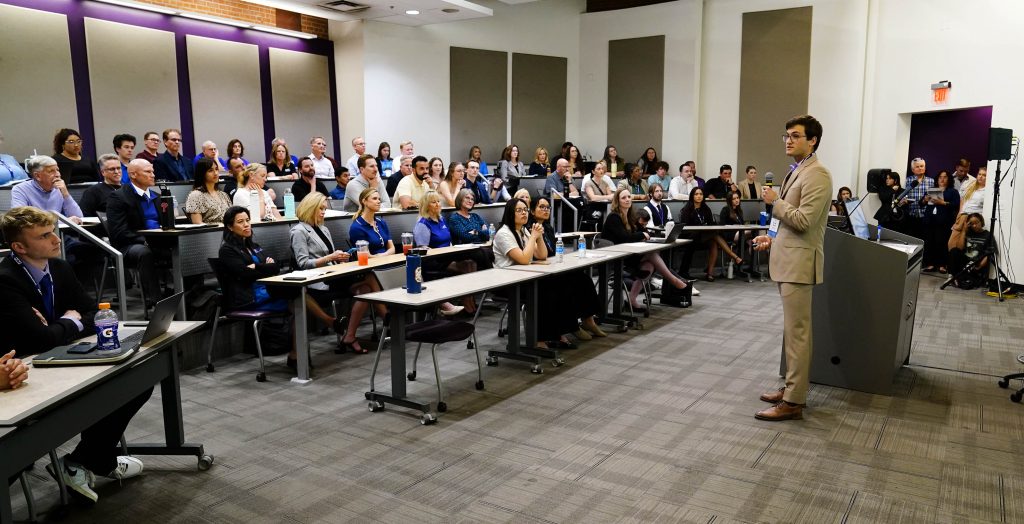
Photos by Ralph Freso / Slideshow
From a talk about a Starfish (not the kind you're thinking of) to a deeper conversation on discovering the meaning of your life, students at Monday's Canyon Undergraduate Research Symposium at Grand Canyon University presented their intriguing academic studies.
The event was just one part of the Canyon Undergraduate Research Conference, organized by the Honors College, which showcased more than 230 students in Antelope Gymnasium and the Engineering Building who gave poster and oral presentations. They represented learners from three of the university's programs: Canyon Emerging Scholars (formerly the College of Natural Sciences-based Research and Design Program), the Honors College and the Canyon Undergraduate Research Symposium.
“There are posters on display from all different colleges, including the new and expanded Canyon Emerging Scholars, and for the first time ever, high school students,” Honors College Dean Dr. Breanna Naegeli said. “This is a huge testament to the growth of undergraduate research opportunities here at Grand Canyon University.”
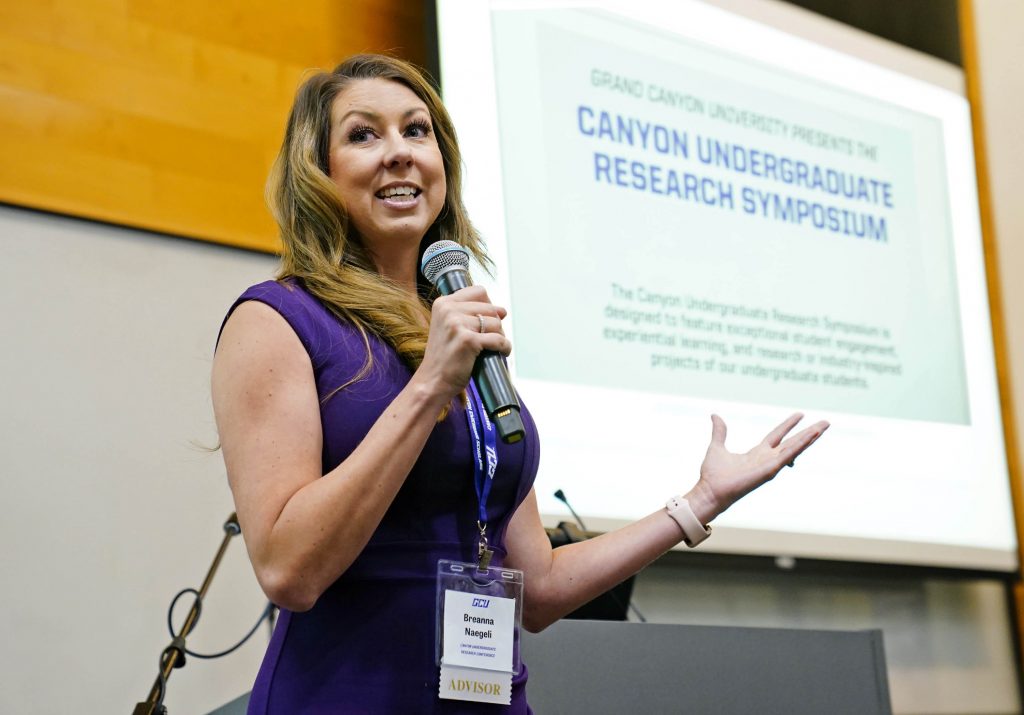
As part of the conference, each year, a committee selects five groups to present their work in the Canyon Undergraduate Research Symposium. The symposium gives students a chance to present their research in front of the university’s executive leadership and GCU President Brian Mueller.
Senior Benjamin Carter captivated the audience from the start of his presentation, “StarfishOS: A Decentralized and Distributed Operating System,” when he began with a demonstration that showed how website and internet tracking work.
He activated his self-made web server in front of the audience and asked them to participate in an experiment by scanning the QR code on the screen.
Every time someone scanned the QR and visited the linked website, Carter’s device beeped and blinked, tracking the website activity. When Carter turned off the server and the audience refreshed their web pages, their connectivity failed to load.
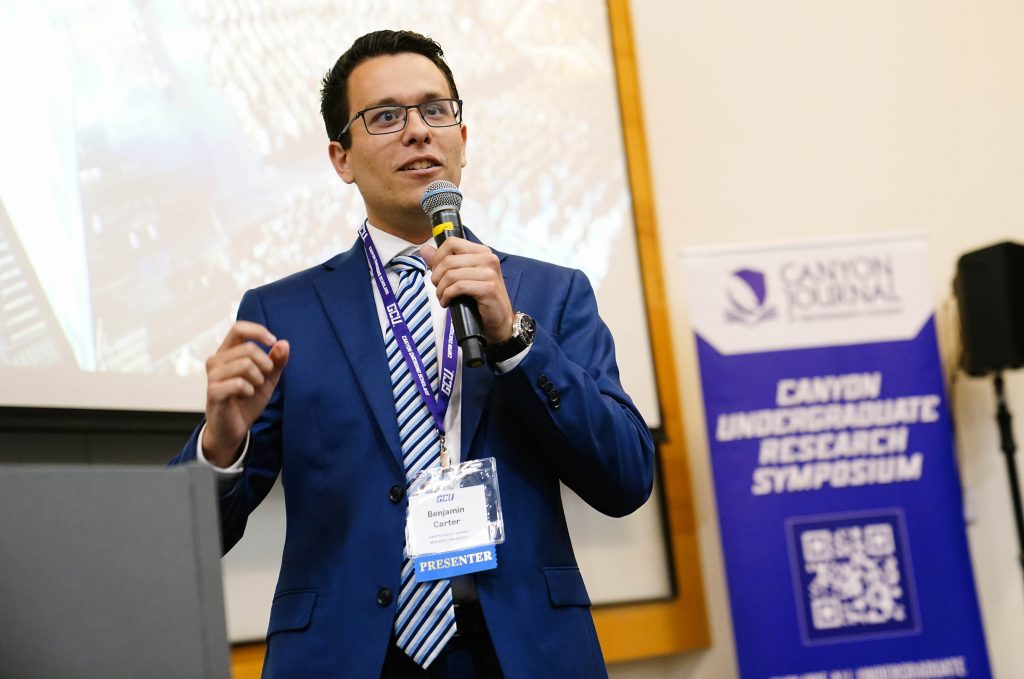
“This web server is a picture of today’s world,” Carter said. “Without the server, the website crashed. This is how the world mostly works today, everything is relatively centralized.
“If a server crashes, everything else crashes. This could be a problem affecting reliability, security and speed of technology.”
But Carter came prepared with a solution – the Starfish Operating System.
If every device contained its own server instead of being connected to one central server far away, it would eliminate potential breach risks, lack of connectivity and reduced speed.
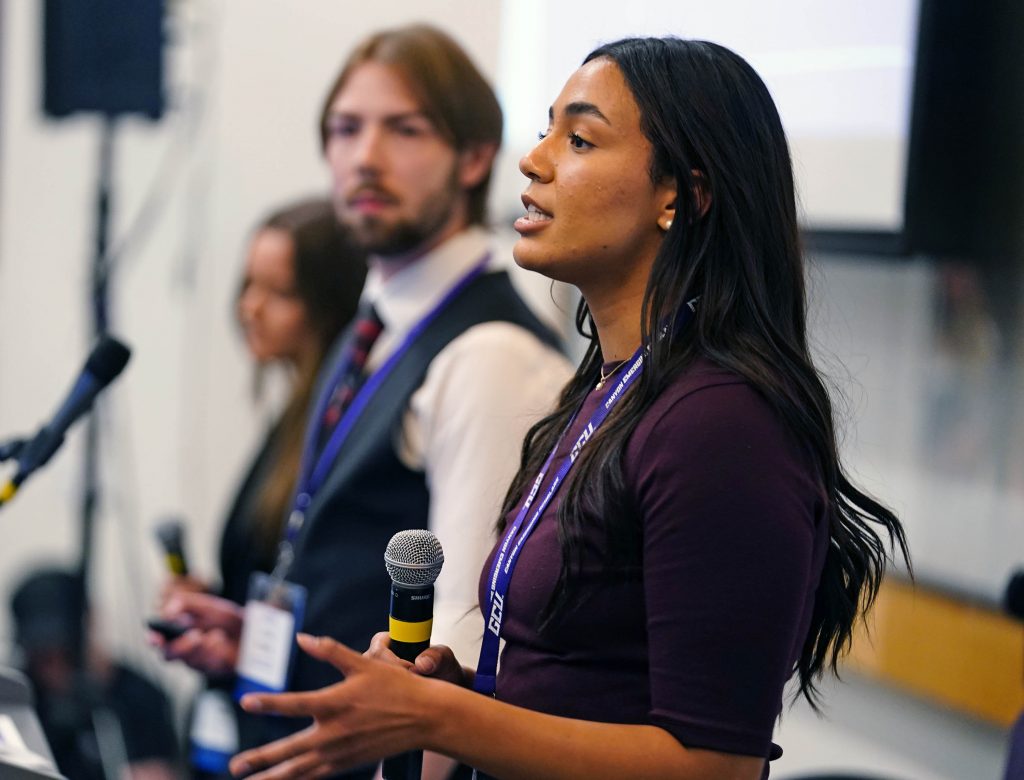
A central server is overloaded with controlling thousands of technological devices at once. Should the server encounter an error, each device would be affected, causing a lack of reliability and stability, Carter said. This increases the risk of data breaches where information from each of those devices could be harmed and stolen because it is all stored in one spot. One server could support only a certain number of devices. If it is overloaded, the connectivity speed could drastically decrease.
“So, what if we brought computing to our devices?” Carter said. “What if Google was on our phones literally without a need for a central server? The Starfish Operating System displaces the need for a data center, offering better reliability, security and speed.”
Carter analyzed costs for small businesses as an example, discovering they spend between $5,000 and $25,000 on website server hosting. However, if individual phones could do their own server hosting, there wouldn’t be a need for a server connection located elsewhere.
“Creating some sort of distributed operating system like this does not currently exist today. I thought this would revolutionize and make it easier for churches, small profits, nonprofits, small and big companies, to market their products with a lower cost.”
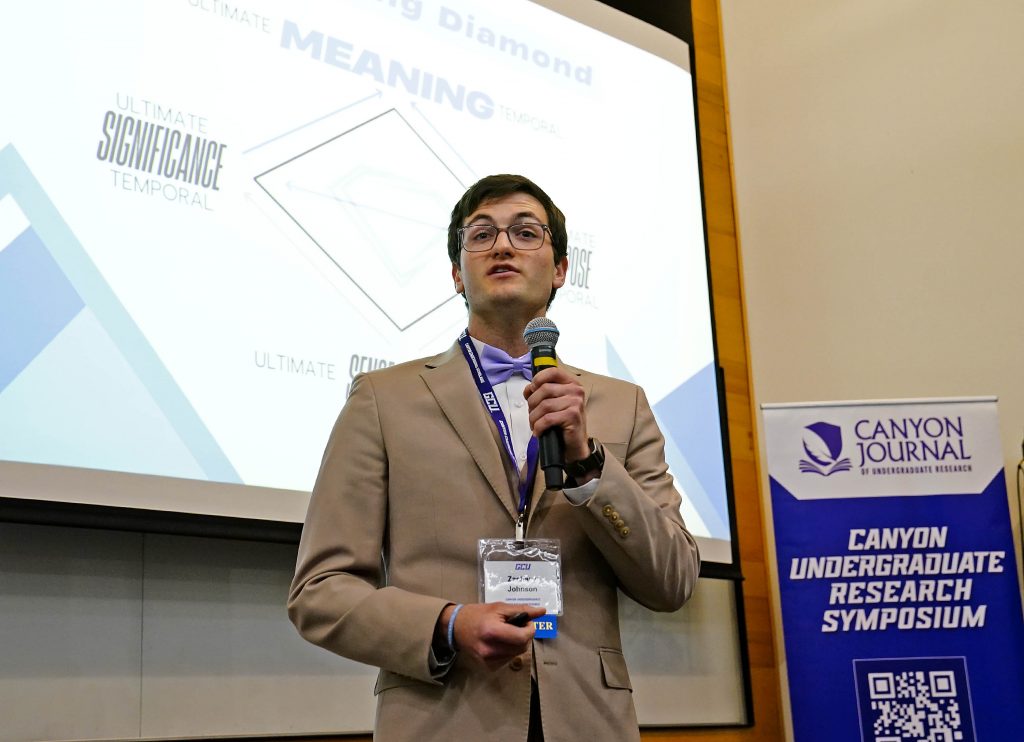
Zachary Johnson spoke to the audience on “The Essence of Meaning."
While Carter focused on technological connections, Johnson focused on personal connections necessary for self-discovery and meaning of life.
“The greatest task for any person is to find the meaning of their life,” Johnson said. “It helps us recognize the significance of all our activities and the impact of our actions.”
He summarized his research in a personal methodology, titled “The Meaning Diamond.” Inspired by various philosophers, Johnson named sense-making, significance and purpose the most valuable components of his diamond.
If an individual seeks and fulfills those components, they will discover the meaning of their lives and value in their time on earth, Johnson said.
“I work with fifth and sixth grades at church, and a lot of them ask meaning-of-life-type questions,” Johnson said. “So, I thought, why don’t I research how I can help people find their meaning in life, even if they are a young kid?”
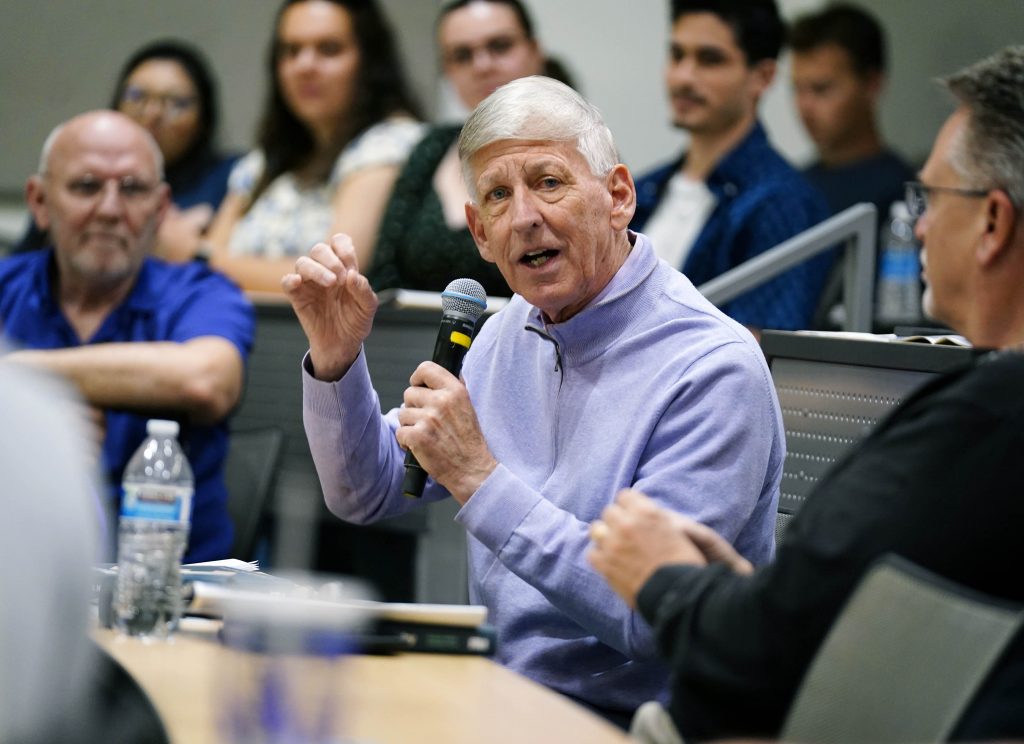
Additional oral presentations showcased at the symposium included:
- “Optimizing Growth Conditions of Cyanobacteria for Hydrogen Production”: Presented by Jessica Doan and Emily Garcia. Faculty advisor: Dr. Galyna Kufryk. Colleges represented: the College of Natural Sciences and Honors.
- “VSiD (Very Small image Detection)”: Presented by Joshua Nelson. Group members: Noah Robbins, Noah Calderon and Derick Ruiz. Faculty advisor: David Demland. Colleges represented: the College of Engineering and Technology and Honors.
- “Self-Efficacy and the Lopes Academy”: Presented by Piper Necaise, Colin O’Reilly and Sedina Hayes. Faculty advisor: Dr. Magen Branham. Colleges represented: College of Humanities and Social Sciences and Honors.
“I am always amazed at their (students’) level of communication and the ability to articulate thoughts to an audience like this, in a highly professional and impactful way,” Mueller said. “It just keeps getting better. Just when you think you can’t top last year’s (research symposium), you come in and top last year’s.”
GCU staff writer Izabela Fogarasi can be reached at [email protected]
***
Related content:
GCU News: Students showcase projects, research at undergraduate symposium
GCU News: Canyon Undergraduate Research Conference was poster perfect
GCU News: Students emphasize health and religion at research symposium



































































